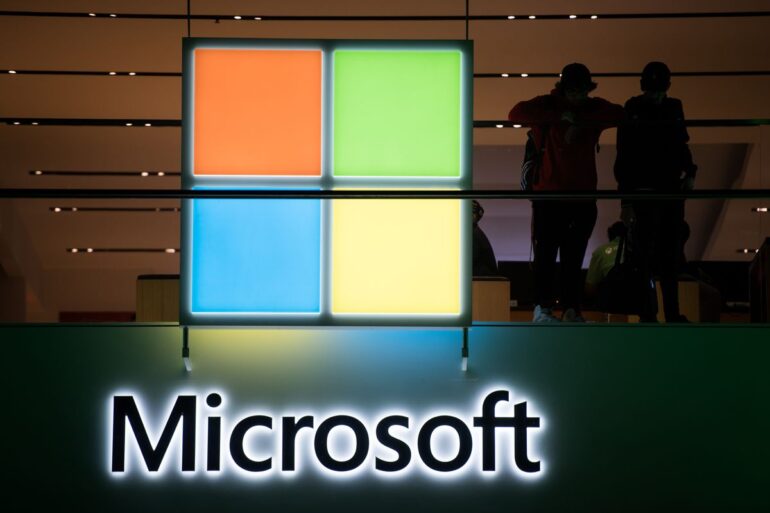TL;DR:
- Microsoft is launching an AI-powered version of the Bing search engine.
- The new Bing, integrated with the ChatGPT AI chatbot, is now available to all users without a waitlist.
- The move emphasizes Microsoft’s commitment to improving the product despite concerns about AI technology.
- Bing has seen a significant increase in daily active users, competing with Google.
- Microsoft showcased the revamped Bing’s ability to generate summaries, chat with users, and compose emails based on search results.
- Updates include the ability to ask questions with pictures, retain chat history, and personalize the chatbot’s responses.
- ChatGPT’s popularity has sparked an AI race among tech companies.
- Microsoft plans to integrate ChatGPT technology into core productivity tools like Word and Excel.
- The decision to add generative AI features to Bing carries risks due to the importance of accurate information in search engines.
- There is increased scrutiny on the rapid pace of AI advancement, with calls for a pause in developing powerful AI systems.
- Microsoft believes in open public conversations to build AI technology effectively.
Main AI News:
Microsoft is launching the latest iteration of its Bing search engine, leveraging the power of artificial intelligence (AI) to deliver a more advanced and personalized user experience. Following a successful limited preview phase, the new Bing, integrated with the viral AI chatbot ChatGPT, is now accessible to all users without any waitlist, provided they are signed in via Microsoft’s Edge browser.
This strategic move by Microsoft underscores the company’s unwavering commitment to advancing its product, despite concerns surrounding the AI technology driving it, such as inaccuracies and tone issues. Some individuals who purposefully tested the new Bing were met with emotionally reactive and aggressive responses.
Yusuf Mehdi, Vice President of Microsoft’s AI initiatives, emphasized the continuous pursuit of improvement, stating, “We’re getting better at speed, we’re getting better at accuracy… but we are on a never-ending quest to make things better and better.”
Recent months have witnessed Bing’s daily active user base surge to over 100 million, a remarkable upturn in a relatively short period. This surge also highlights Google’s response, as the market leader has been incorporating similar AI capabilities into its search engine.
In a demonstration earlier this year, Microsoft showcased the revamped Bing’s ability to generate search result summaries, engage in chat-based interactions to address additional queries, and even compose emails or other written compositions based on the search results.
At a recent press event held in New York City, Microsoft unveiled some forthcoming updates, including the capability to ask questions using images, retain chat history to facilitate familiarity between the chatbot and users, and export responses to Microsoft Word. Additionally, users can now personalize the tone and style of the chatbot’s replies, choosing between more extensive, creative responses or succinct, direct ones.
The surge in interest surrounding ChatGPT, developed by OpenAI with Microsoft’s financial support, has sparked a competitive race among technology companies to integrate similar AI tools into their respective products. While Microsoft, OpenAI, and Google have taken the lead in this arena, other industry giants like IBM, Amazon, Baidu, and Tencent are also actively developing comparable technologies. A host of startups are likewise exploring AI writing assistants and image generators.
In addition to enhancing search capabilities, Microsoft plans to bring ChatGPT’s technology to its core productivity tools, including Word, Excel, and Outlook. This integration holds the potential to reshape the way we work. However, the decision to introduce generative AI features to Bing carries inherent risks, given the public’s reliance on search engines for accurate and dependable information.
Microsoft’s recent moves align with the broader context of increased scrutiny surrounding the rapid progress of AI technology. In March, influential figures in the tech industry, such as Elon Musk and Apple co-founder Steve Wozniak, called for a halt in training the most powerful AI systems for at least six months, citing profound risks to society and humanity.
Mehdi, however, expressed his disagreement with the notion of pausing AI development, stating that it may not address or advance the field significantly. Nonetheless, he acknowledged the concerns that underpin such calls, asserting, “The only way to really build this technology well is to do it out in the open in the public so we can have conversations about it.”
Conlcusion:
The launch of Microsoft’s AI-powered Bing search engine, along with the integration of the ChatGPT AI chatbot, signifies a significant development in the market. This move demonstrates Microsoft’s commitment to leveraging AI technology to enhance user experience and compete with industry leader Google.
The increasing number of daily active users on Bing highlights the growing demand for advanced search capabilities. Moreover, the wave of AI integration by major tech companies, including Microsoft, OpenAI, and Google, has initiated a competitive race in the market. This indicates a clear shift towards incorporating AI tools into products and services.
However, the potential risks associated with introducing generative AI features to search engines, such as accuracy and reliability concerns, necessitate careful consideration. The industry’s response to the rapid advancements in AI technology, as well as the call for increased scrutiny and public conversations, further emphasizes the need for responsible and transparent development. Overall, this market landscape presents both opportunities and challenges for businesses seeking to capitalize on AI-powered solutions and cater to evolving customer expectations.

